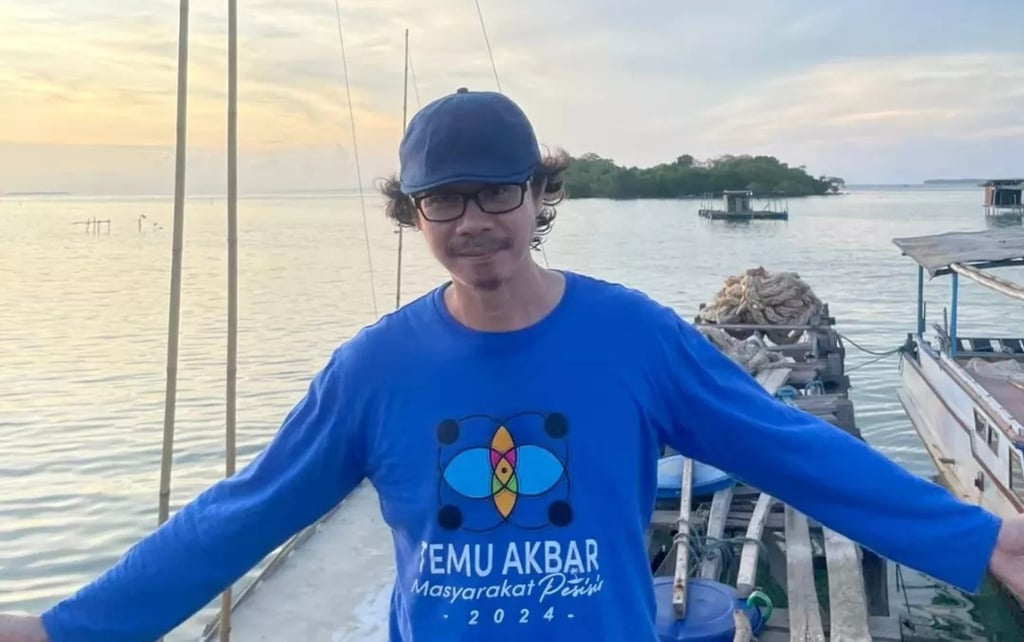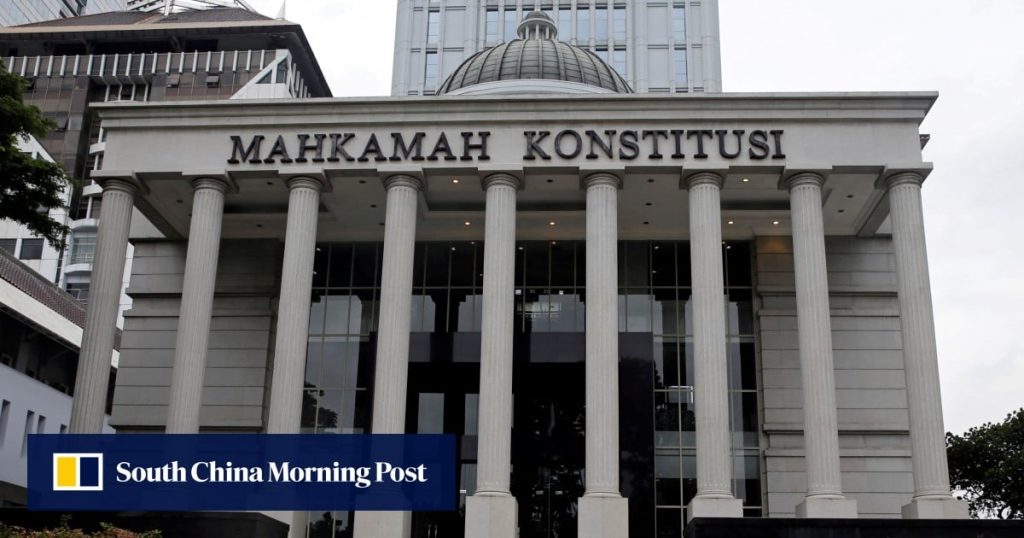A landmark court ruling in Indonesia barring public officials, groups and corporations from filing defamation suits against their critics has been hailed by rights groups as a step forward for free speech – though concerns remain over other laws still used to suppress dissent in the world’s third-largest democracy.
On April 29, the Constitutional Court partially granted a petition by environmental activist Daniel Frits Maurits Tangkilisan, who had challenged a controversial defamation provision in the country’s Electronic Information and Transaction (ITE) Law.
Critics have long argued that the law is too broad and has been used to stifle public criticism of those in power.
Tangkilisan was sentenced to seven months in prison in April last year over Facebook comments criticising the environmental impact of a shrimp pond development in the Karimunjawa Islands, off the northern coast of Central Java. Local residents filed the complaint collectively, saying they were offended by Tangkilisan’s posts, leading to his prosecution under the ITE Law. He was later acquitted on appeal.

In its ruling last month, the Constitutional Court stated that defamation charges under the ITE Law could only be brought by individuals, not by “government agencies, groups of people with specific or particular identities, institutions, corporations, professions or positions”.


